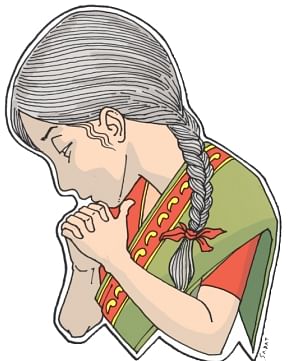Not safe even among people

Women almost regularly face sexual harassment in public places, mostly on streets, in markets and on public transport, according to a government survey.
About 43 percent of the 12,600 women surveyed recently have said public places are the most common spot where they are sexually harassed.
The survey, jointly done by the Bangladesh Bureau of Statistics and United Nations Population Fund, covered all the seven divisions of the country. The women were randomly chosen from city, urban and rural areas.
"I hardly know a woman who has not been verbally harassed or groped in the streets," said Umme Nahar, an official of a private firm in the capital.
She claimed she was first groped at the age of twelve and that she is sexually harassed every day on the streets.
"My friend was nearly raped the other day," said Shejuti Hridi, a student at a Chittagong university.
Relating the incident, Shejuti said her friend was returning home just before the evening when she noticed a middle-aged man following her. It was a quiet residential area and there was nobody around, so she started walking faster. Suddenly the man tackled her from behind and threw her to the ground.
"My friend screamed and the man got up and ran away," Shejuti said, adding that what happened next affected her friend in a far worse way.
"An old man came running to help her and started admonishing her for travelling alone, saying it was her fault. When she told her friends about it, they too agreed, saying that since she is taller than the average girls, she is more attractive and so she must wear a veil," she told this correspondent.
Asked for her comments, Ayesha Khanam, president of Bangladesh Mahila Parishad, said women's attire was not the issue here.
"Women wearing all types of clothing face sexual violence. It cannot be generalised that women wearing a certain kind of clothing face more sexual harassment," she said.
According to a survey by the ICDDR, B and the United Nations Population Fund,
around 54 percent of the urban men think it a woman's fault if she gets raped. The survey was done on 2,000 men in 2011.
Ruma, an official in a private company in the capital, said she nearly broke down in tears on a bus recently because when she tried to get a seat reserved for women from a man occupying it, he flung degrading comments at her.
"He declared to everyone that I was probably a sex worker because I was wearing jeans and I dared to talk back," she said.
When university student Adity Shayantany reprimanded a man groping her, he hurled abuses at her, saying that she was making false accusations.
"This happened during a religious festival. I was only in eighth grade then," she said.
Anamika Alam of Barabkunda village of Sitakunda in Chittagong told The Daily Star that the situation was just the same in the villages.
"I was stalked for days on end," she said. However, that did not stop her from going to school or university.
Living in the port city now, Anamika feels that villages are better compared to the scale of sexual violence she faces on the city streets.
"At least everyone knows me there and would not dare to do anything more extreme than stalking. I have no support networks to fall back on in the city," she said.

 For all latest news, follow The Daily Star's Google News channel.
For all latest news, follow The Daily Star's Google News channel. 



Comments